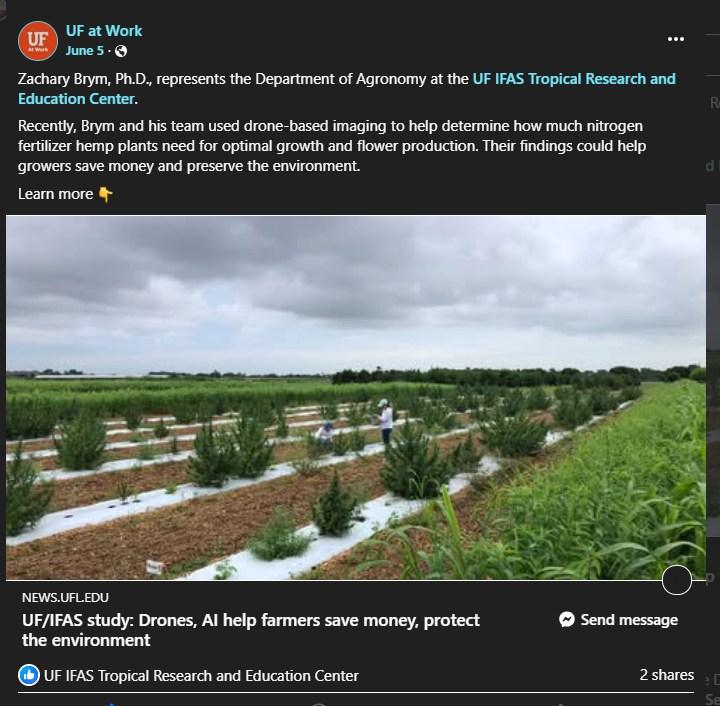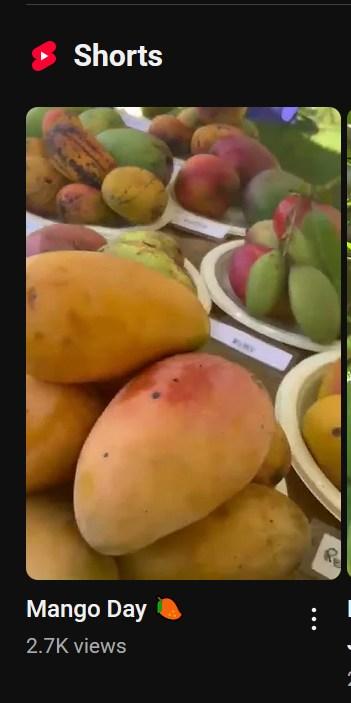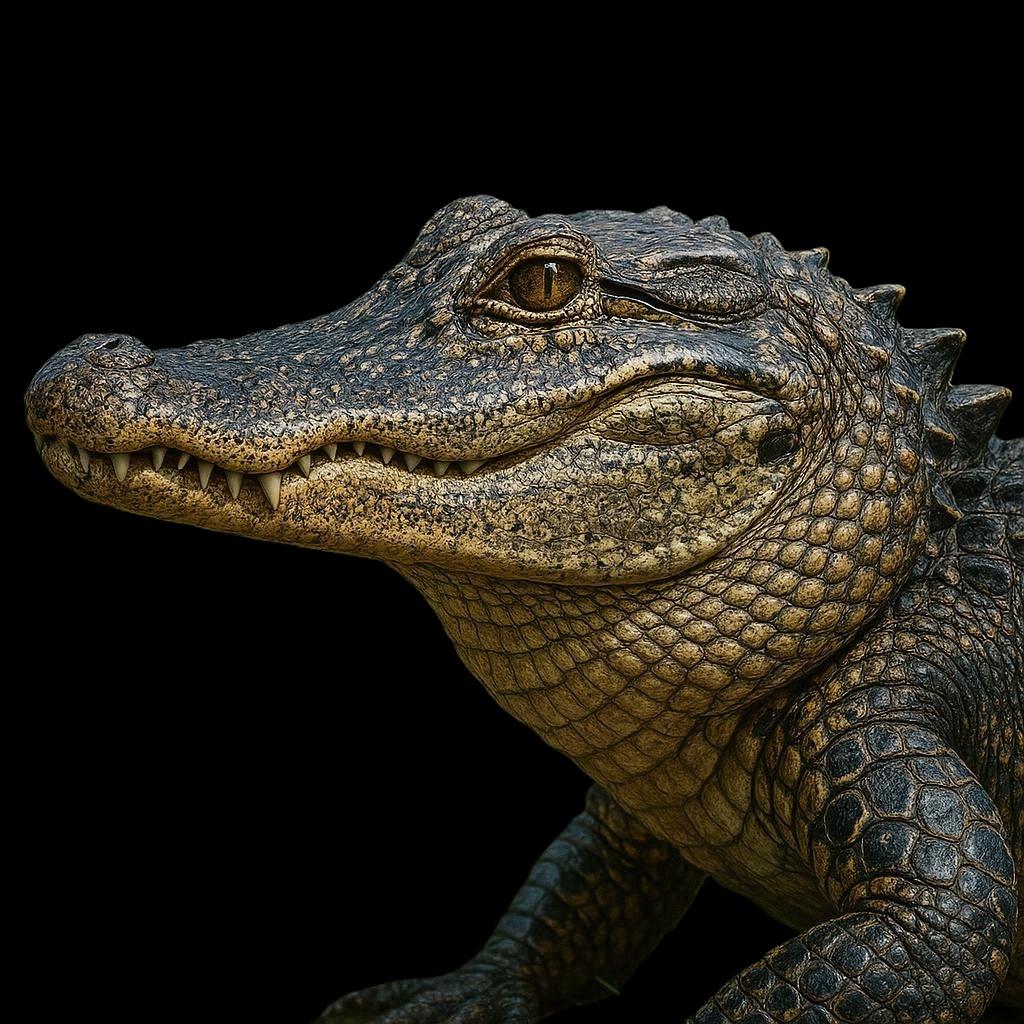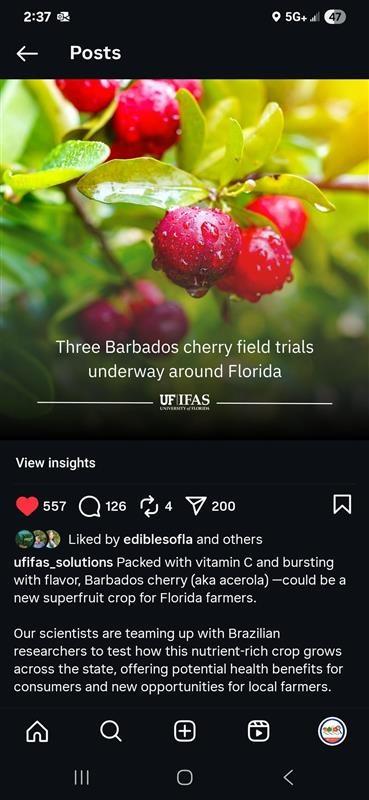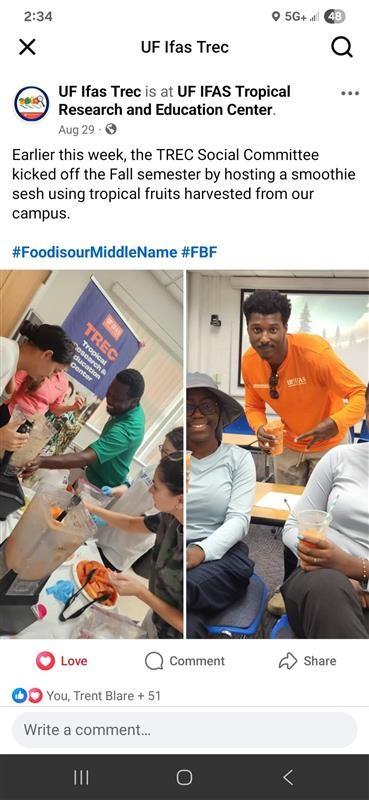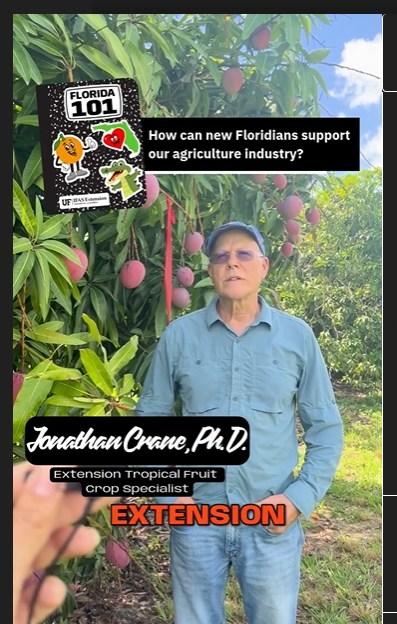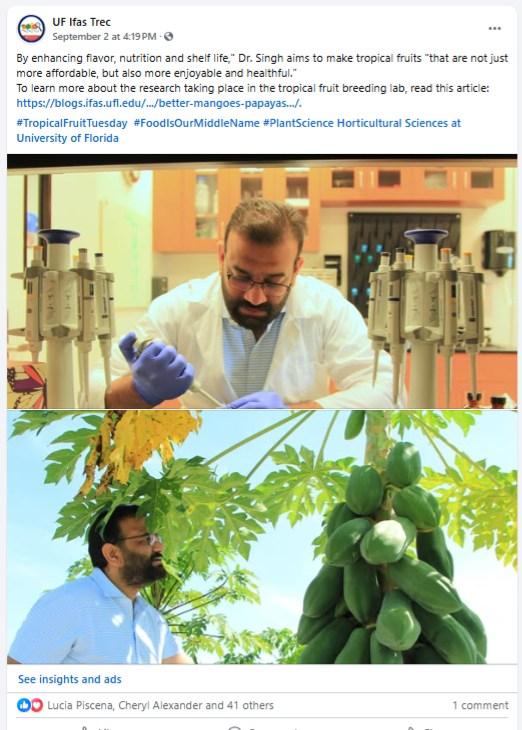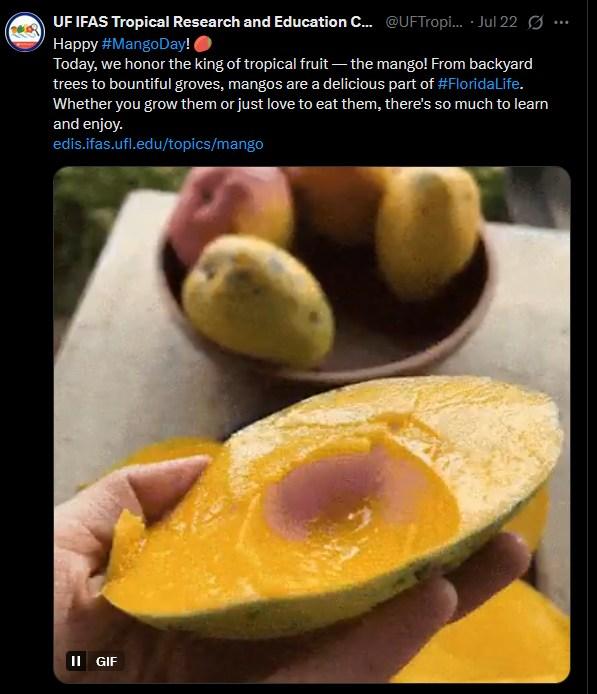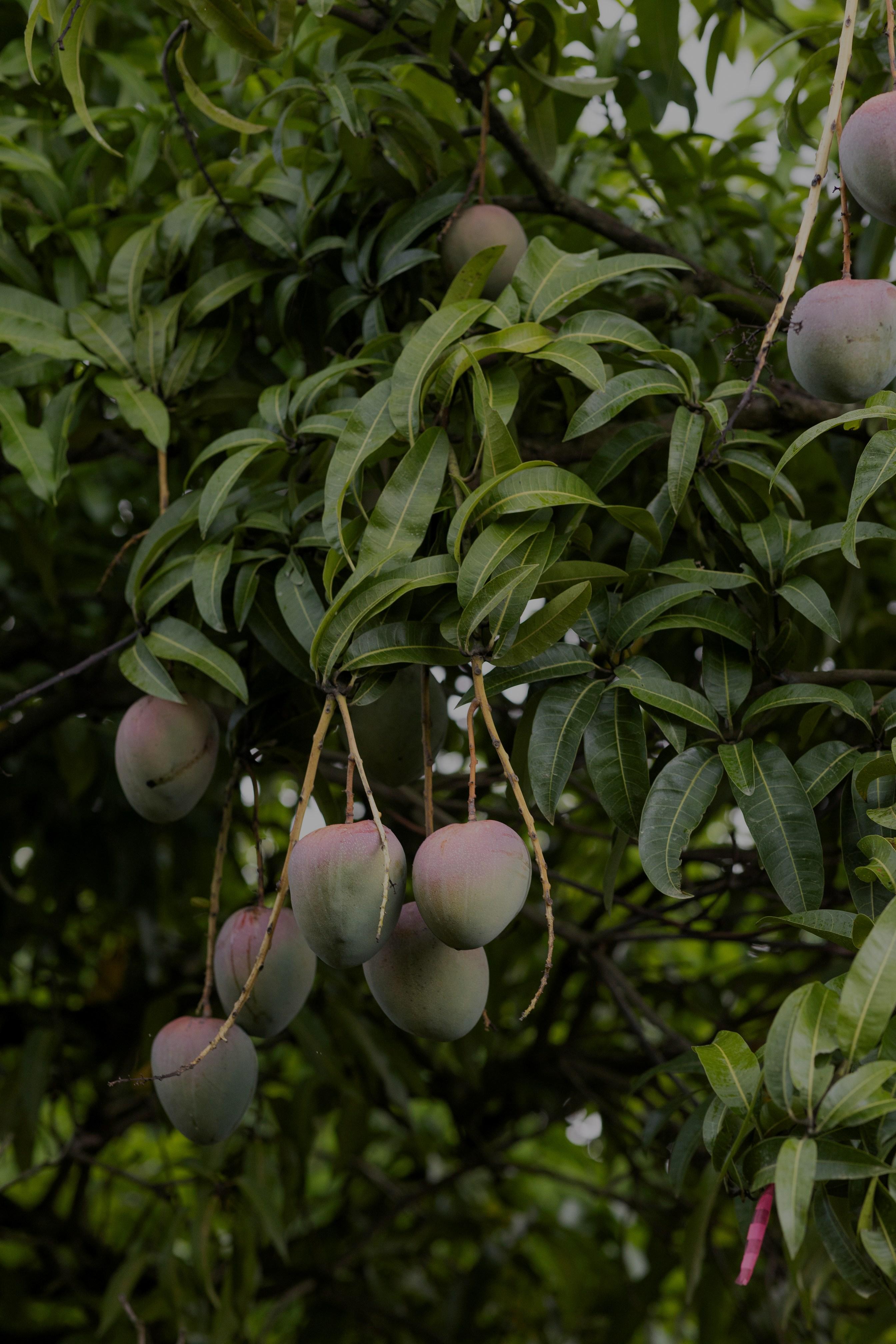

UF/IFAS Tropical Research & Education Center
Summer 2025
You can keep up with the UF/IFAS TREC using the below resources.






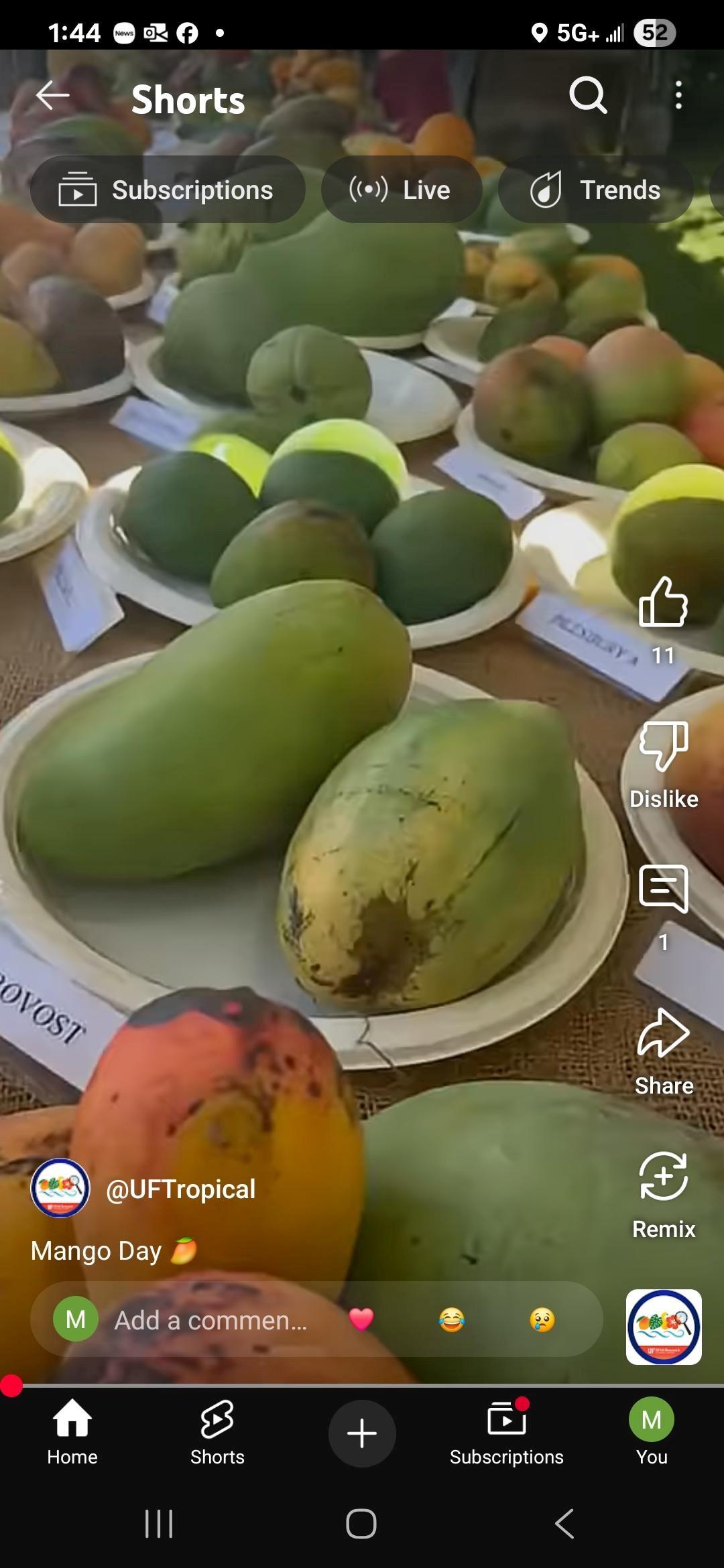



UF/IFAS Tropical Research & Education Center
Summer 2025
You can keep up with the UF/IFAS TREC using the below resources.







Can you believe it? November is just around the corner and in Miami-Dade, that means it’s time to celebrate Farmers Month, a special time when we pause to recognize the vital role farmers play in our lives. After all, three times a day, every day, we rely on a farmer.
To kick off this month-long celebration, we’re thrilled to invite you to our signature event: One Night in the Tropics, taking place on November 1st at 6:00 PM sharp at our Homestead campus. This unforgettable evening will be filled with delicious food, lively dancing, and meaningful community engagement, all in honor of the hardworking farmers who nourish our region.
This year’s celebration is especially meaningful. With your incredible support, we’ve reached a major milestone: the completion of our new student dormitory, The Pauline O. Lawrence Student Residence. Earlier that same day, we’ll officially open its doors, marking a new chapter in our commitment to student success.
But we’re not stopping there. As we look ahead, our next challenge is clear, that is, supporting our graduate students. Funding advanced study is becoming increasingly scarce, and yet, to remain competitive, we must provide our students with more than just world-class facilities and mentorship. They need financial support to pursue their research with focus and determination.
That’s why we’re launching Challenge 180—our 2026 fundraising initiative to raise $180,000, enough to fully fund one PhD student for four years. This includes tuition and a living stipend, ensuring they can dedicate themselves fully to their academic journey.
Challenge 180 is more than a scholarship. It’s an investment in innovation, leadership, and real-world impact. Our graduate students are tackling some of the most pressing issues of our time relevant to our community. And with your help, they can pursue bold, ambitious projects that extend far beyond our campus.
I invite you to join us in celebrating Farmers Month and help us fuel the future of research and discovery that ensures our farmers remain in business and our meals secure. Together, we can make a lasting difference.
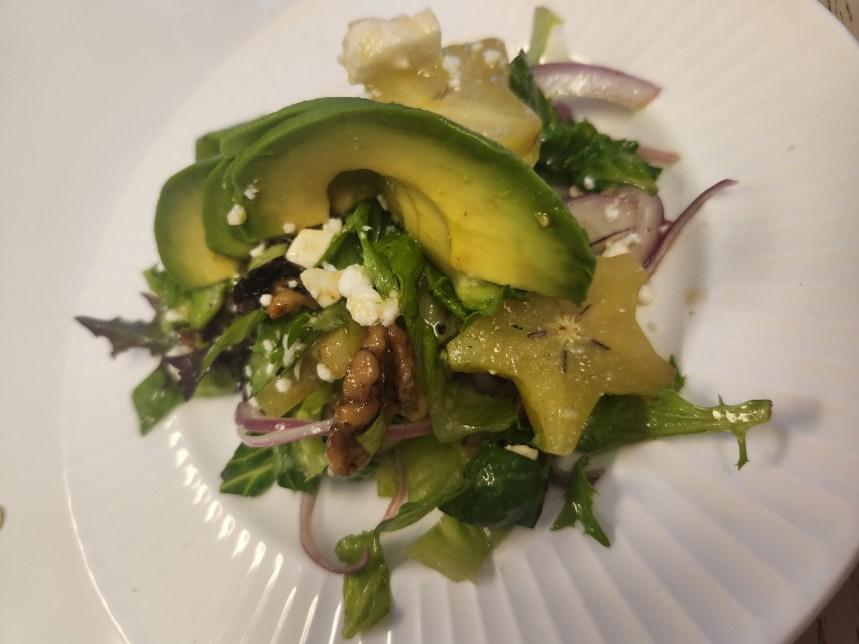

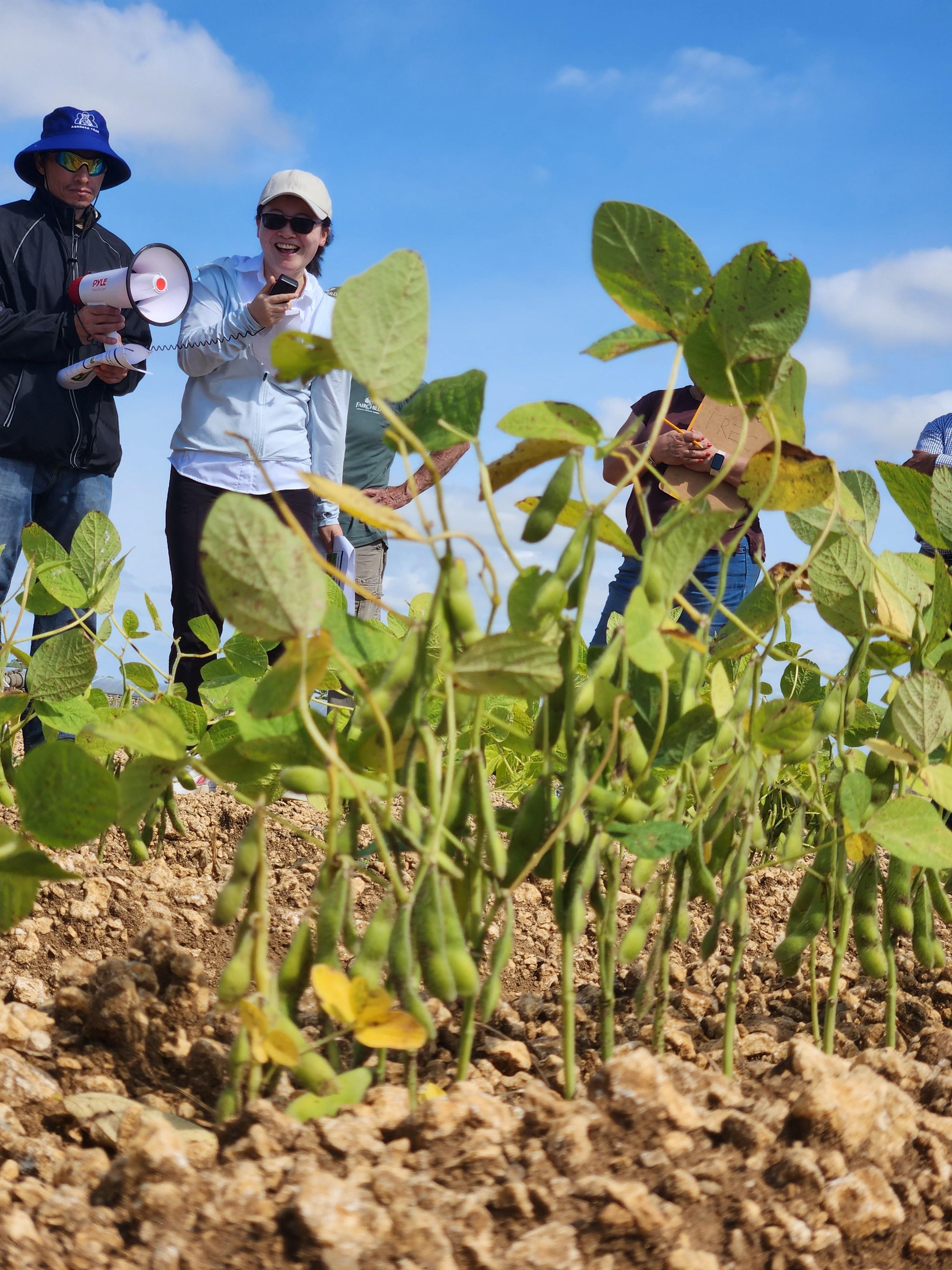



In this installment of the UF/IFAS TREC’s Research Report, we’ll share some of the progress taking place in Dr. Xiaoying Li’s horticulture vegetable crops lab. The overarching goals of Dr. Li’s program include the diversification of emerging crops in south Florida, the improvement of sustainable and profitable existing vegetable crops, and the introduction and promotion of alternative vegetable crops with sustainable practices.
Introducing emerging vegetables for local cropping diversity
In working with growers, Dr. Li’s lab is selecting edamame varieties adapted to south Florida’s hot, humid climate and short daylength. So far, the lab has conducted 16 variety trials and identified two varieties with strong production potential. Ongoing research is expanding the range of edamame varieties tested and refining production practices (e.g., planting time, fertilization rates) to improve yield and performance. In addition, Dr. Li is evaluating other Asian vegetables such as tonghao, winter melon, and quick choy, along with culturally important crops like cachucha pepper, ube, and turmeric to promote diversified cropping systems in subtropical climates.
Addressing production issues of existing crops
Seed health is a critical factor affecting vegetable production in south Florida. Contaminated seeds lead to poor seedling establishment, higher production costs, and yield losses. To tackle this, Dr. Li’s lab screened 300 okra germplasm lines collected from the USDA for seed-borne pathogens and evaluated their impact on germination and seedling development, building a valuable dataset on seedborne pathogen risks. To accelerate solutions, they are also working with the UF/IFAS Department of Plant Pathology to develop a rapid molecular detection kit for okra seed pathogens. This tool will benefit plant breeders, seed companies, and regulatory agencies by enabling faster, more reliable seed health screening and supporting cleaner seed systems.
Promoting sustainable practices for organic production
As demand for organic vegetables grows, Dr. Li’s lab is poised to support local farmers in developing sustainable practices that promote organic production. These practices help farmers “protect natural resources, boost farm productivity, and strengthen the local economy.” On organic-certified farms, Dr. Li’s team is working with growers to select the cover crops and integrate them with biochar as strategies to build soil organic matter and suppress weeds under subtropical growing conditions. Some of the cover crops being tested in growers’ fields include Japanese millet, buckwheat, sorghum grass, sunn hemp, and cowpea. Read how Dr. Li is collaborating with Florida Organic Growers here.
Additionally, the lab is also evaluating newly developed biostimulant products (i.e., microbial and natural-based amendments) designed to improve nutrient use efficiency, promote plant vigor, and enhance resilience against stresses. Together, these efforts provide organic producers with science-based tools to support sustainable production. We encourage you to stay up to date with Dr. Li’s lab by bookmarking her website. You will even have an opportunity to connect with her at an upcoming workshop on November 16.
Alexander, L. W., Wu, X., Hulse-Kemp, A., Simpson, S. A., Youngblood, R. C., Liu, X. F., Scheffler, B.E., & Rinehart, T.A. (2025). Two haplotype-resolved genomes of Hydrangea macrophylla reveal im portant flower traits for breeding improvement. Acta Horticulturae, 1434, 121-128. DOI: https:// doi.org/10.17660/ActaHortic.2025.1434.17
Ataide, L., Vargas, G., Velasquez, Y., De Giosa, M., Reyes-Arauz, I., Villamarin, P., Canon, M., Riley, S., & Revynthi, A. (2025). Greenhouse evaluation of conventional and biorational insectcides for managing the invasive Thrips parvispinus (Karny) (Thysanoptera: Thripidae). Agriculture, 15(13), 1451. DOI: http://dx.doi.org/10.3390/agriculture15131451
Berihun, M. L., Bayabil, H. K., & Awoke, G. W. (2025). Examining the spatiotemporal interplay between sea-level rise and sea surface temperature in coastal regions of Florida. Ocean Dynamics, 75(67). DOI: https://doi.org/10.1007/s10236-025-01711-5
Berto, M. M., Cruz, L. F., Avery, P. B., Cloonan, K. R., Dunlap, C. A., & Carrillo, D. (2025). Beyond phoresy: Interactions between Histiogaster arborsignis (Acari: Acaridae) ambrosia beetles and their fungal symbionts in Florida avocados. Symbiosis, 96, 91-104. DOI: https://doi.org/10.1007/s13199025-01063-0
Bijak, A. L., Smyth, A. R., Barry, S. C., Martin, C. W., Spengler, C. A., & Reynolds, L. K. (2025). Seagrass species identity drives leaf litter decomposition across a naturally occurring phosphorus gradient. Estuaries and Coasts, 48, 130. DOI: https://doi.org/10.1007/s12237-025-01566-5
Chen, S., Malinowski, D. P., Sakhanokho, H. F., Revynthi, A. M. & Wu, X. (2025). Estimation of genome size variation in Hibiscus rosasinensis. HortScience, 60(8), 1282-1288. DOI: https:// www.doi.org/10.21273/HORTSCI18561-25
De Giosa, M., Dale, A. G., Wu, X., Revynthi, A. M. (2025). Potential of commercial biorational and conventional pesticides to manage the Ruellia Erinose Mite in ornamental landscapes. Insects, 16 (801). DOI: https://dx.doi.org/10.3390/insects16080801
Gitonga, D., Carrillo, D., Gazis, R., Hajihassani, A. (2025). Influence of soil-related factors on distribution of plant-parasitic nematodes in tropical fruit fields in south Florida. Plant Disease. DOI: https:// doi.org/10.1094/PDIS-02-25-0445-RE
Gómez-Moya, C. A., De giosa, M., de Moraes, G. J., Acuña Soto, J. A., Morel, M., Revynthi, A. M. & Carrillo, D. (2025). First report of Acalitus simplex (Acari: Eriophydae) in the Dominican Republic, Novitates Caribaea, 26: 77-83. DOI: https://doi.org/10.33800/nc.vi26.381
Hussain, S., Teshome, F., Tulu, B. B., Awoke, G. W., Hailegnaw, N. S., & Bayabil, H. K. (2025). Leaf area index (LAI) prediction using machine learning and UAV based vegetation indices. European Journal of Agronomy, 168(1): 127557. DOI: http://dx.doi.org/10.1016/j.eja.2025.127557
Kabalan, B. A., Reisinger, A. K., Pintor, L. M., Scarasso, M., Smyth, A. R., & Reisinger, L. S. (2025). Intra specific variation in crayfish behaviours alters stream ecosystem functions. Ecology Letters, Jun;28 (6):e70148. DOI: https://doi.org/10.1111/ele.70148
Park, Y. S. & Her, Y. (2025). Regression-based estimation of pollutant loads from direct runoff and baseflow. Journal of Korean Society on Water Environment, 41(3), 151-162. DOI: https:// doi.org/10.15681/KSWE.2025.41.3.151
Teshome, F. & Bayabil, H. (2025). Leveraging drone imagery, ground canopy temperature, and machine learning for precise evapotranspiration modeling. Remote Sensing Applications Society and Environ ment, 101661. DOI: https://doi.org/10.1016/j.rsase.2025.101661
Teshome, F. T., Bayabil, H. K., Schaffer, B., Ampatzidis, Y. (2025). Estimating crop evapotranspiration using drone imagery, ground canopy temperature, and machine learning techniques. Remote Sensing Applications: Society and Environment, 39, 101661. DOI: https://doi.org/10.1016/ j.rsase.2025.101661
Waqas, M. S., Bayabil, H. K., Hailegnaw, N. S., Hussain. S., Tariq, A., Abubakar, S. (2025). Drought miti gation and livelihood improvement options through rainwater harvesting structures in a rainfed agri cultural system. Agricultural Systems, 230, 104469. DOI: https://doi.org/10.1016/j.agsy.2025.104469
Kinsman, M. E., Simonne, A., Chase, C. A., Meru, G., Sargent, S. A, & MacIntosh, A. J. (2025). "Harvest and handling of calabaza (Tropical Pumpkin): HS1495, 8/2025". EDIS 2025 (4). Gainesville, Fl. DOI: https://doi.org/10.32473/EDIS-HS1495-2025
Just in the last few weeks, our faculty have produced information critical to the success of growers in south Florida. Although the two-spot cotton leafhopper has been here since December 2024, it has only recently become a quarantinable pest of ornamental crops. Another production issue facing tropical fruit growers is Avocado Sun Blotch Viroid. Learn more below.

Avocado Sun Blotch Viroid (ASBVd) is a major concern in all avocado producing countries. The increase of ASBVd infected trees in Miami-Dade County may be due, in part, to being overshadowed by Laurel Wilt. Learn more about this viroid, its symptoms, and some control tactics on this website.
The two-spot cotton leafhopper has good taste: from delectable Florida vegetables like okra and eggplant to some of our prettiest ornamental crops like sunflowers and tropical hibiscus, the two-spot cotton leafhopper is on it all.
You can learn more about this invasive pest from this article. But to stay up-to-date on the latest information and recommendations, you should bookmark Dr. Alexandra Revynthi’s page. That way you’ll have access to the latest resources for this and other ornamental pests.
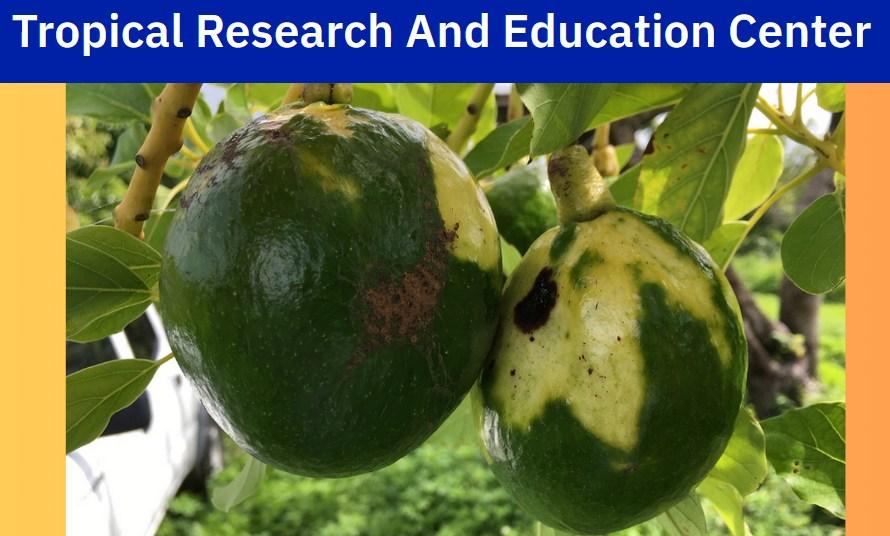

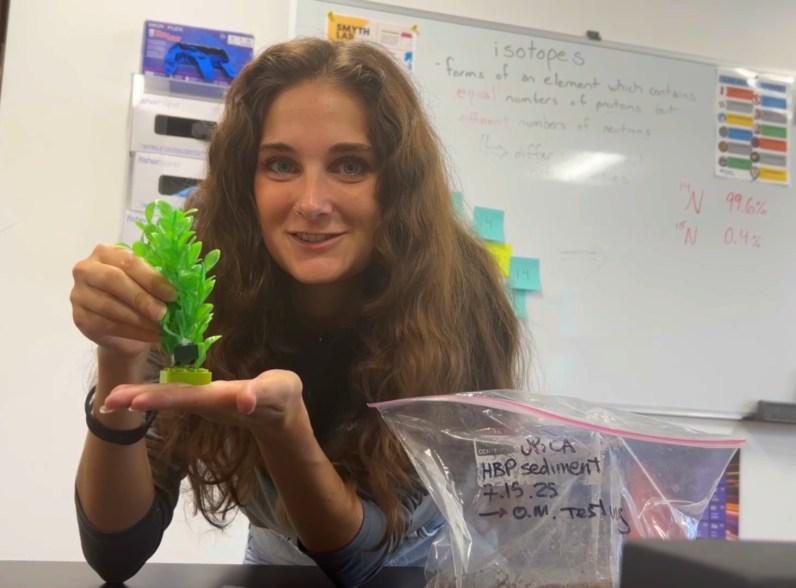
Watch this video to learn more about Jenna’s research.
Mary Schneider is much more than a retired school teacher she is one of the most outspoken and ardent supporters of the agricultural industry of Miami-Dade County, specifically the ornamental industry. Mrs. Schneider has served on the Miami-Dade chapter of the FNGLA Board of Directors for many years in various positions,
Including as President twice. For over 15 years, she has served as President of the Dade County AGRI-Council, a non-profit organization that promotes and supports the agricultural industry in Miami-Dade County.
Mrs. Schneider produced the Miami-Dade Chapter Foliage Guide to help promote the county's foliage industry and was instrumental in the establishment of the Botanical Seed Bank, an online auction platform that helps with the collection and preservation of imperiled plants. Recognizing the damage that various pests and diseases cause to local agriculture production, Mrs. Schneider was instrumental in getting the Miami -Dade Chapter of FNGLA to establish an Endowment at the UF/IFAS Tropical Research & Education Center to fund pest management research.

Among the awards which Mrs. Schneider has won include the Babe Greer Award (twice), the 2013 FNGLA Outstanding Volunteer of the Year award, and the 2022 UF/IFAS Outstanding Volunteer of the Award. You can find her at any agricultural event in Miami-Dade County handing out programs, serving food, or ushering people to their seats.

In this edition of TREC s Post Doc Exposé, we feature Dr. Abebe Adege, a post doctoral researcher in Dr. Haimanote Bayabil’s Water Resources Lab.
Q: Where did you complete your Bachelor’s, Master’s, PhD? How did you arrive at TREC?
I completed my Bachelor's and Master's degrees at Addis Ababa University in Ethiopia, in Computer Science and Information Science, respectively. I then earned my PhD in Computer Science from National Taipei University of Technology in Taiwan.
I did not come to TREC directly from my home country. Initially, I went to the University of Florida in Gainesville for a postdoctoral research position, focusing on AI applications for soil data analysis and fertilizer recommendation.
As the project approached completion, I began exploring works related to my skill and interests. I received offers from institutions in three different states, but I chose to join UF/IFAS TREC because the research conducted in Dr. Bayabil’s lab closely aligns with my research interests and skills.
Q: How did your previous experiences prepare you for your role at TREC?
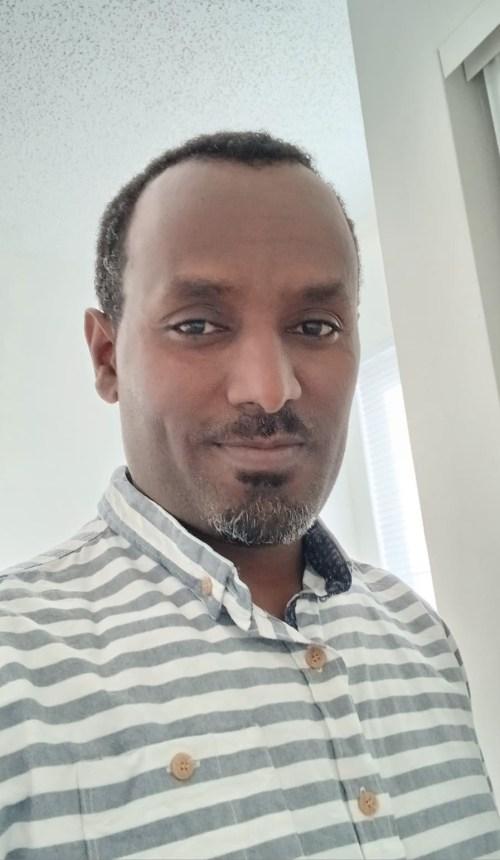
With a background as a tenure-track faculty member in Ethiopia, I have led international research projects focused on AI for agriculture and food security in resource-limited settings. My experience in smart agriculture, model development, and cross-institutional collaboration along with strong technical and grant writing skills has prepared me to contribute effectively to applied research at TREC.
Q: If you could meet one celebrity, who would it be? Why?
If I had the opportunity to meet a celebrity, I would choose Andy Jassy, the CEO of Amazon. I am eager to learn about his journey from his early career to his current leadership role and how Amazon has evolved into a global technology giant under his direction. I would also like to understand the key factors behind Amazon’s success, including its innovative strategies and business model. Gaining such insights would be highly valuable for shaping my future in the technology sector.

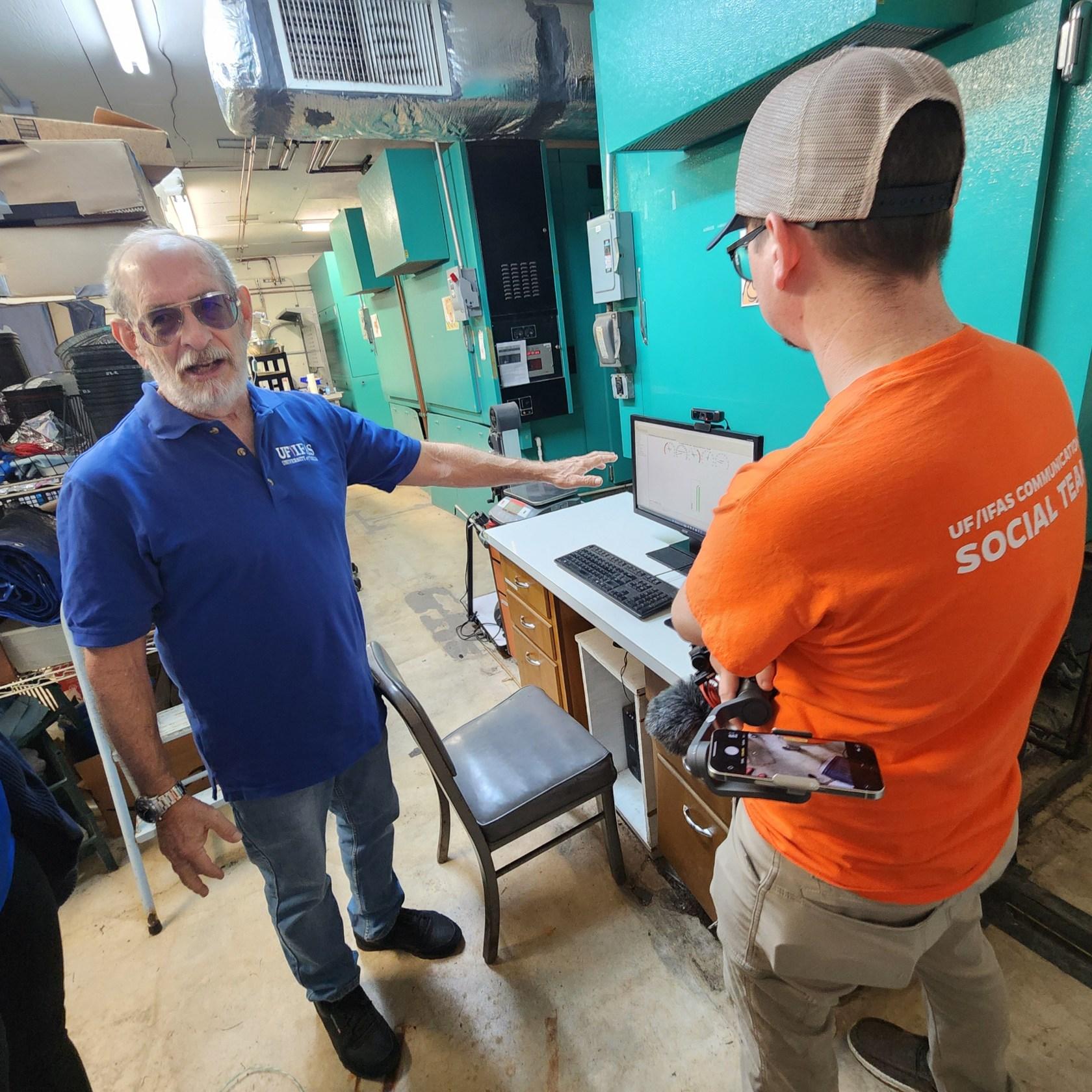
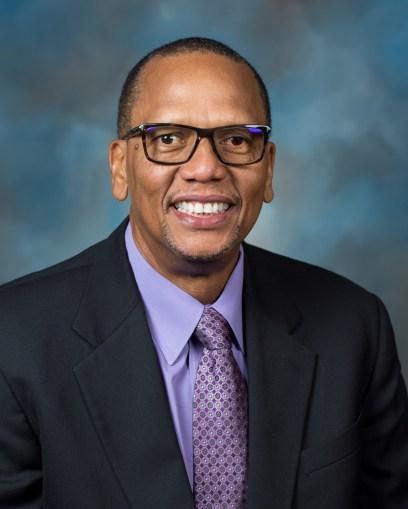
30
Yuqing Fu Biological Scientist, III
Recently we celebrated the retirement of Bill Smith, Agricultural Assistant II. Bill concluded an exceptional 35-year career at TREC! Since joining the center in 1990, he has been an integral part of the field crew, consistently supporting faculty and student research with unwavering dedication.
Known for his calm demeanor and thoughtful approach, he brought a steady hand and quiet leadership to every endeavor. Bill’s deep expertise, tireless work ethic, and uplifting spirit have left a legacy at TREC and among all who had the privilege of working with him. We extend our heartfelt gratitude to Bill and wish him a joyful and richly deserved retirement.
Our sincere best wishes go with him as he begins his retirement journey.
Maury Martinez Maintenance Generalist, III
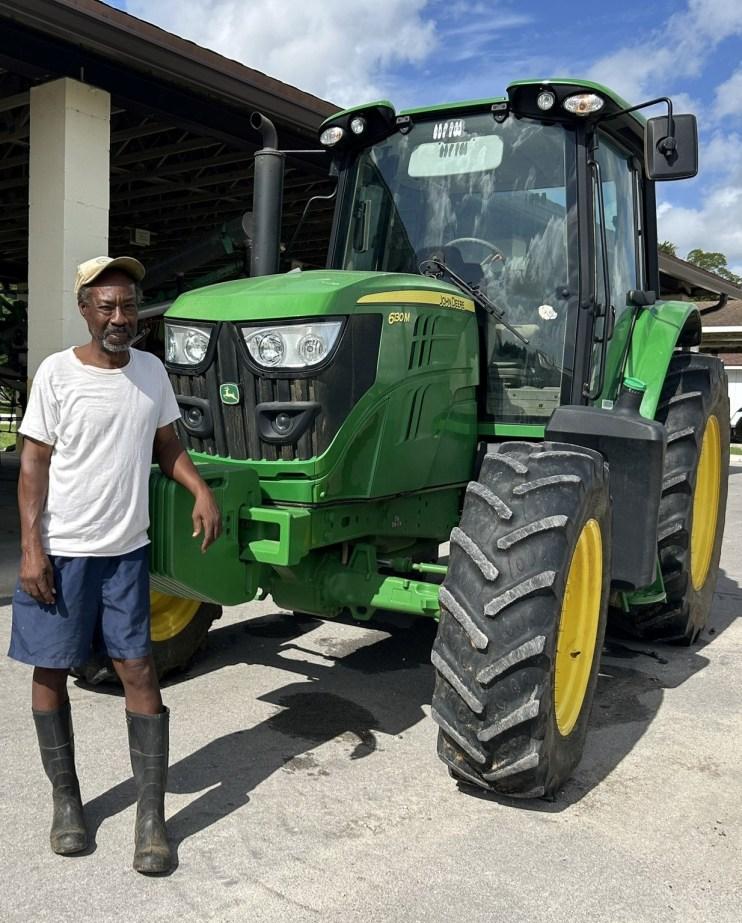
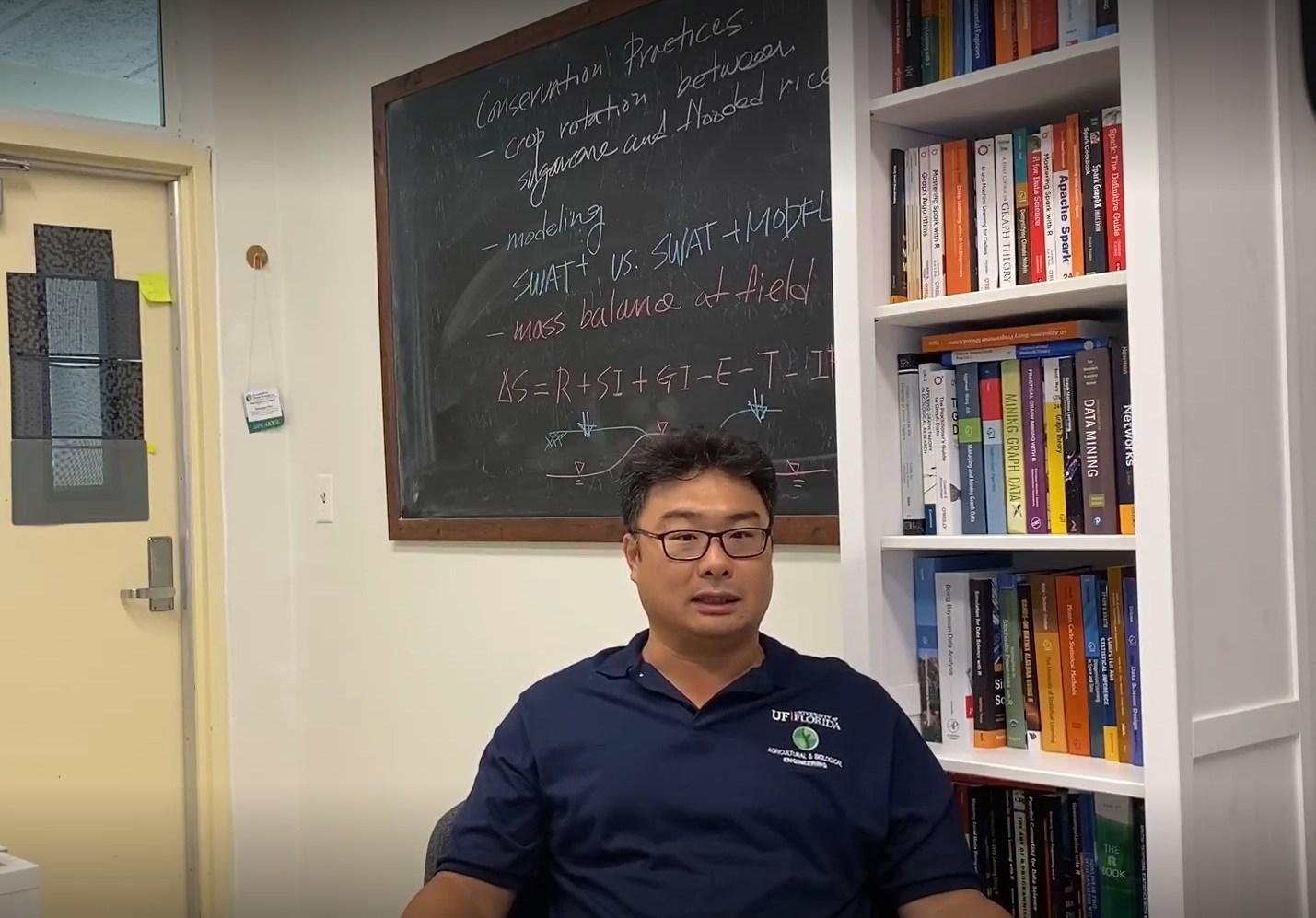
and a multidisciplinary team of scientists received a $1 million grant to address escalating groundwater flooding and saltwater intrusion risks in coastal communities, Ashley Smyth, Zachary Brym, Eban Bean, Edwill evaluate nature-based solutions, such as mangrove restoration and green infrastructure, and develop a user-friendly decision-support tool to guide coastal hazard mitigation and resilience strategies under scenarios of sea-level rise, cliClick here to learn more about this study.
Dr. Young Gu Her also received $196,000 in funding from the National Park Service for a duration of 2 years to develresolution coupled surface water-groundwater model for the northern Everglades and adjacent Water Conservation Area 3. The model aims to simulate local-scale hydrologic/ hydraulic processes, canal-marsh interactions, and impacts of proposed restoration infrastructure. Results will directly support Everglades restoration planning, Tamiami Trail operations, and phosphorus water quality assessment.
Dr. Xiaoying Li received a $2,000 Extension Professional Development mini grant to attend the American Society of Horticultural Society's (ASHS) 2025 Annual Conference in New Orleans, Louisiana. Her presentation was titled “Growing Edamame as a Specialty Vegetable in south Florida”.
Drs. Young Gu Her, Ashley Smyth, Edward Evans, Eban Bean, and Zachary Brym. RAISE: Safeguarding U.S. Coastal Groundwater Supplies from Flooding and Saltwater Intrusion. Awarded $999,721 from the National Science Foundation.
Drs. Young Gu Her. Development of Fine-Scale Hydrologic Model for Water Conservation Area 3 and Northern Everglades National Park . Awarded $195,641 from the National Park Service.
Dr. Daniel Carrillo. Remote Monitoring of Anastrepha. Awarded $149,704 from the US Department of Agriculture (APHIS).
Dr. Daniel Carrillo. FL FY25: Tropical Ash Leaf Production. Awarded $67,258 from the US Department of Agriculture (APHIS).
Dr. Dakshina Seal. Control of Two-spot cotton leafhopper, Amarasca biguttula. Awarded $26,000 from BASF Corp.
Dr. Young Gu Her. Development of a SOHO-Based Hydrological Modeling Framework Enabled by Human Social Sensing for Navigating Agricultural Social-Hydrological Systems and Contributing to HELPING. Awarded $10,921 from the Ministry of Science and ICT in Korea.

This semester, the following students concluded their research at TREC and have crossed into the next stage of their scientific careers:
Max Gosselin earned an M.S. from the Department of Entomology and Nematology.
Maria Kim earned a Ph.D. from the Department of Agronomy.
Marielle de Moraes Berto earned a Ph.D. from the Department of Entomology and Nematology.
Gabriella Reyes earned a Ph.D. from the Department of Soil, Water, and Ecosystem Sciences.
Sisi Chen and Jesse Potts, PhD students in Dr. Xingbo Wu's tropical plant breeding and genetics lab, were each awarded the Muriel Rumsey Foundation Scholarship for the 2025 academic year. This $5,000 scholarship is awarded to students studying horticulture by the UF College of Agricultural and Life Sciences' Office of the Dean scholarship team. Stay tuned for pictures of Sisi and Jesse at the CALS Scholarship Reception in Gainesville.
Kertye Myrtil, a Masters student in Dr. Xiaoying Li's horticulture vegetable crops lab, received one of the 2025 Florida State Horticultural Society travel awards in the amount of $200. These monies supported Kertye’s travel to attend the 138th annual meeting of the FSHS in Bonita Springs where she presented “Evaluating Edamame Commercial Varieties for Seasonal Adaptation in south Florida”.

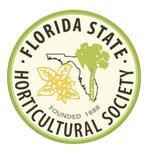
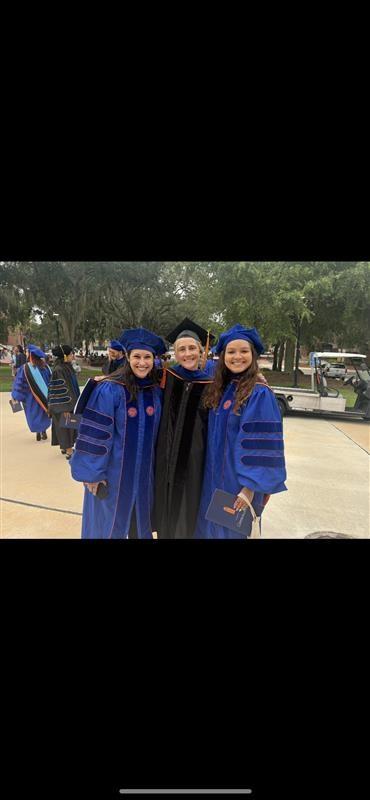

This summer, we hosted five students from Miami Dade College through the STEM SMART Grant. Some of the projects that these students worked on included
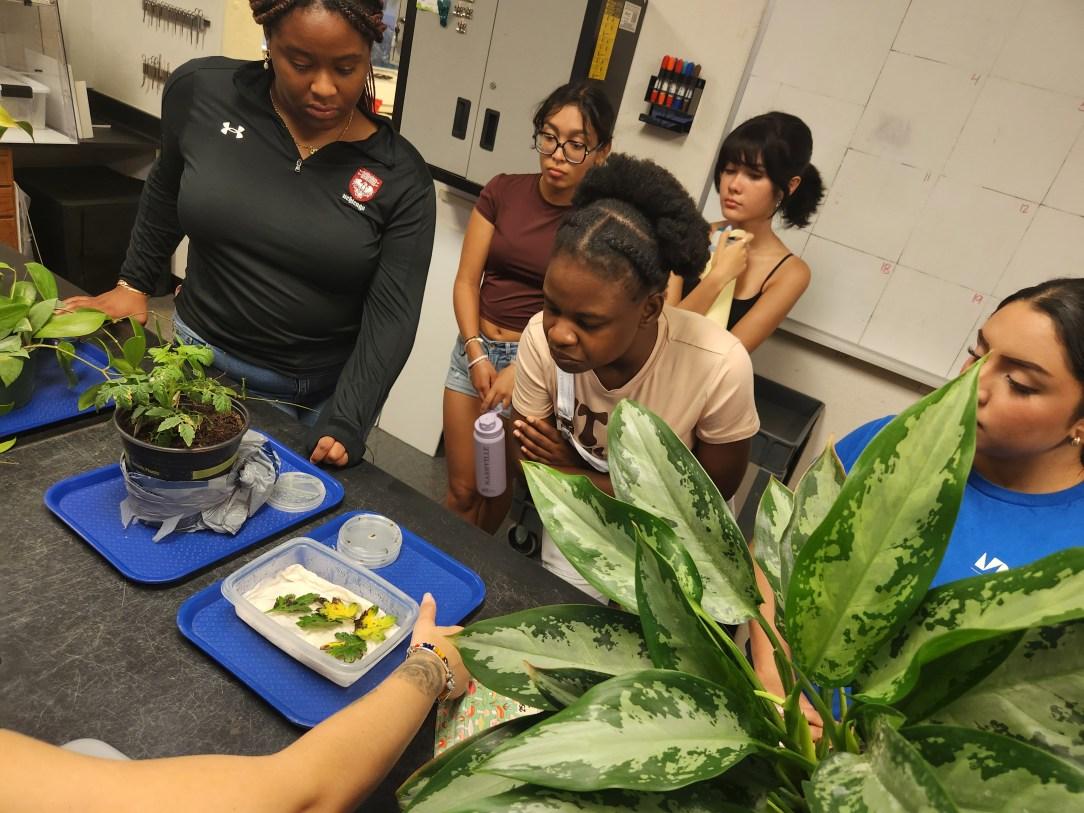
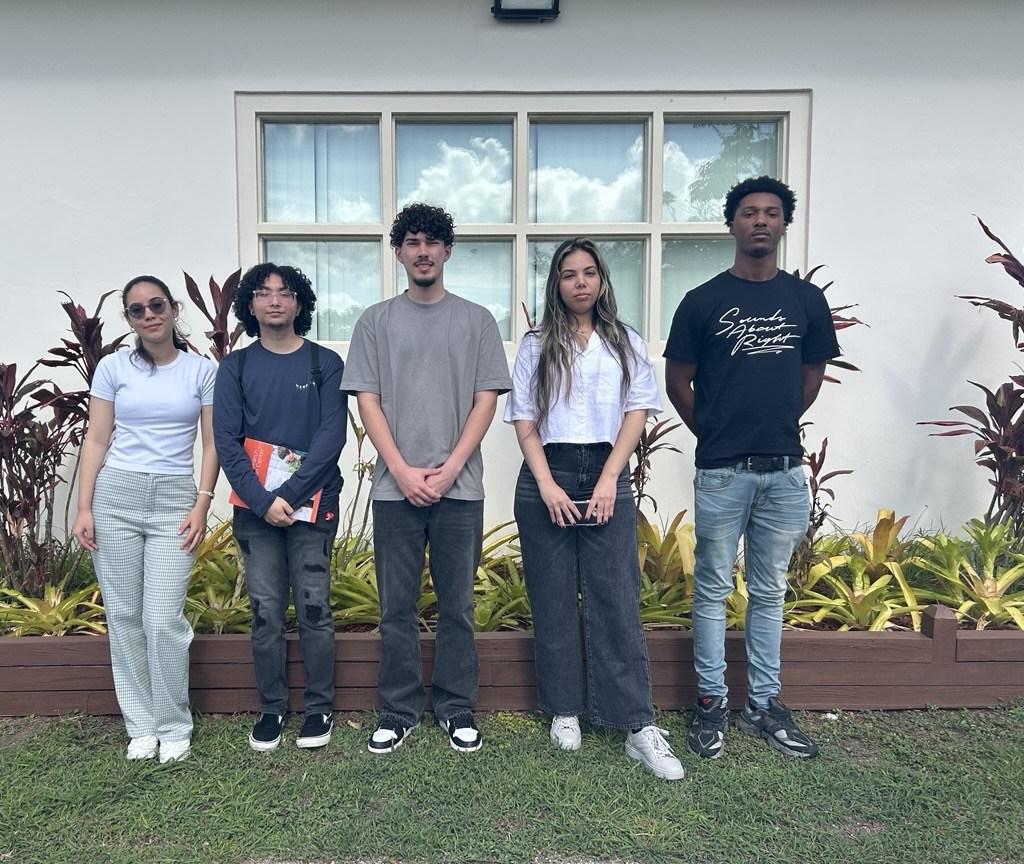

The Miami Dade College—Homestead Campus’ Microbiology Girls Club toured the Center this summer. In the labs, the group learned about some of the illnesses affecting crops grown locally, how insects affect agriculture, and how plant breeders can support growers. In the field, the girls learned about agroecology, the local Pine Rockland, and they got to taste some of the sweetness that the tropics can provide.
Dr. Zachary Brym’s Agroecology lab welcomed a camp of 1st – 6th grade students to learn about agroecology: farming with nature to support production, the environment, and the community. Students participated in interactive stations: planting succulents, smelling aromatic plants in our sensory garden station, and observing different insects. The students also toured the Center and concluded their tour at Agro Eco Park where the lab showcased the principles of agroecology. This visit sparked curiosity in the students about the connections between production, the environment, and the community.
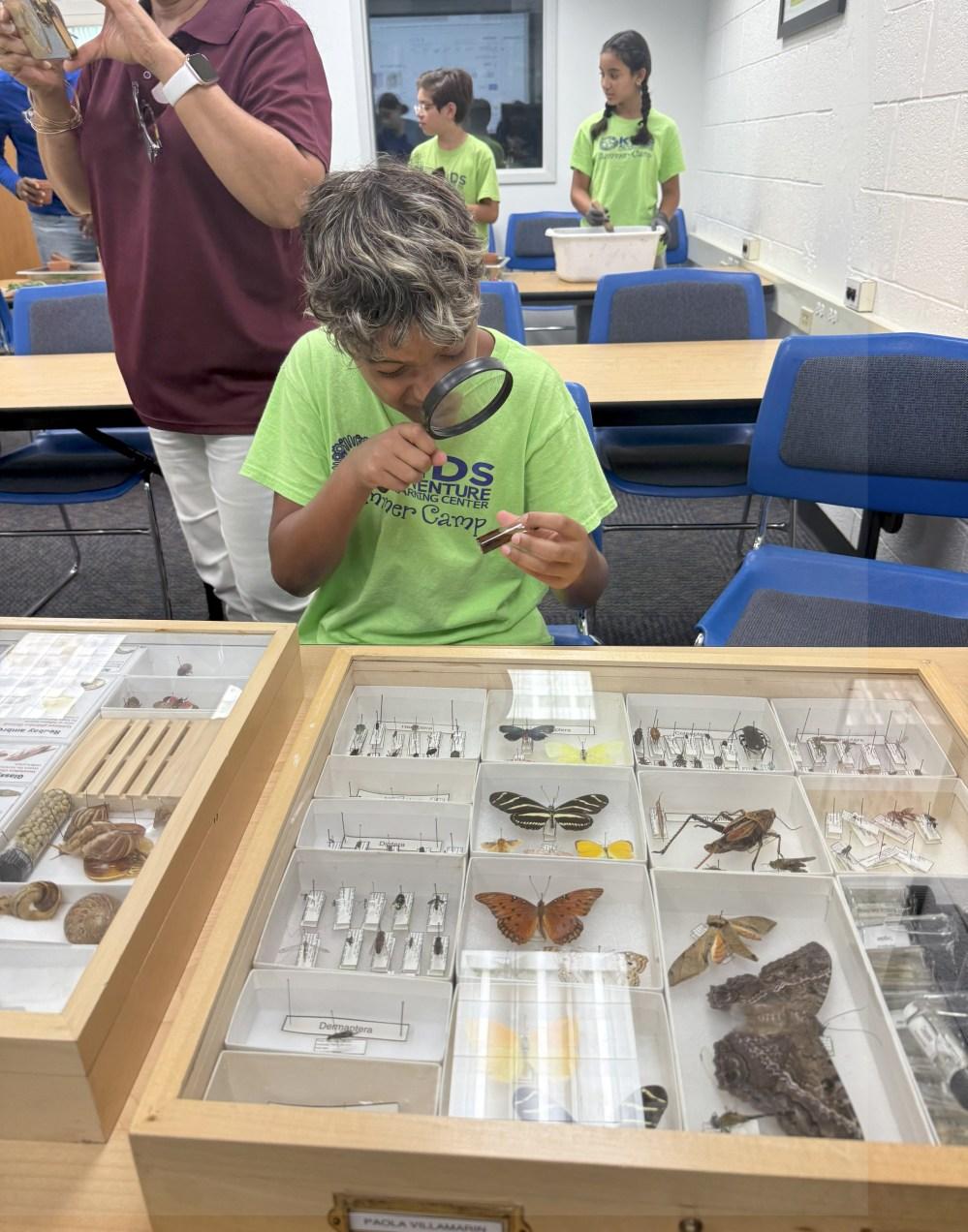
We are deeply grateful to Dr. Pauline Lawrence for her generous contribution of $50,000 to TREC, made in loving memory of her late husband, Dr. Carlton G. Davis. This remarkable gift has secured the naming rights for the living and dining area of our newly constructed dormitory, now proudly known as the Davis Living and Dining Area.
In acknowledgment of the donation, Dr. Evans, Director of TREC, stated that “This gift is not only a significant investment in our infrastructure, but also a powerful affirmation of our mission to provide students with a safe, supportive, and enriching environment.”
Thank you, Dr. Lawrence, for your unwavering support and commitment to our community. Your generosity continues to inspire us all.
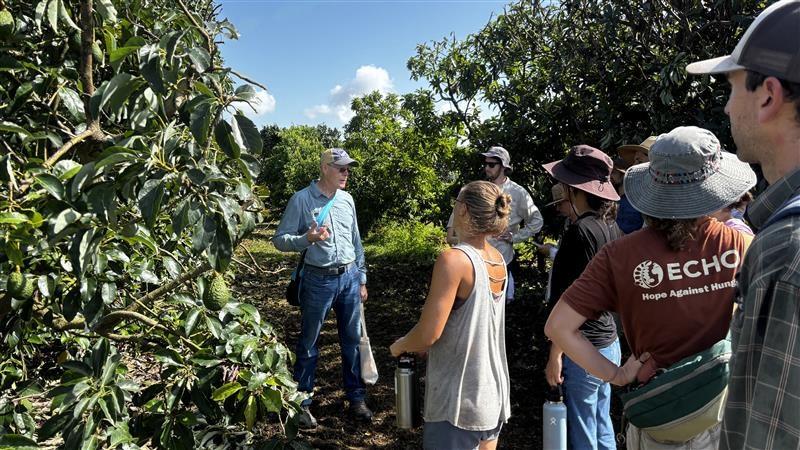

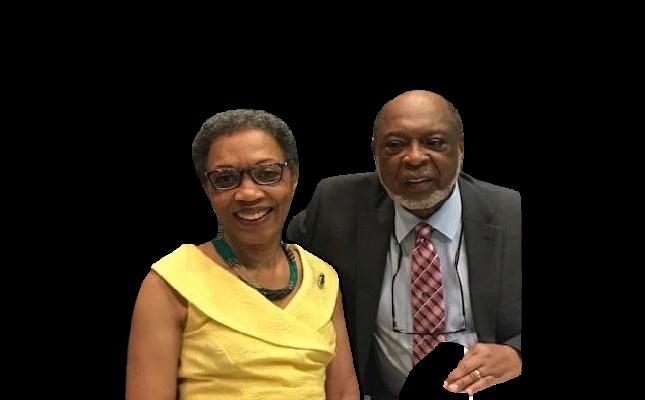
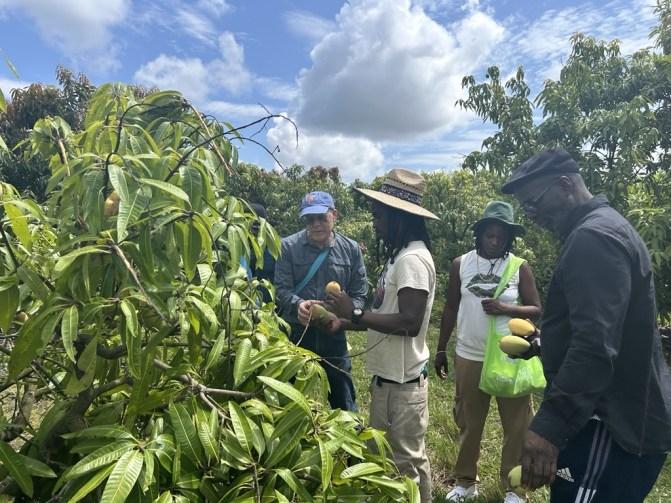
It was a busy summer for our faculty! With their help, the Center hosted tours for members of several agencies: the North-South Institute, AgVet, and ECHO. Each of these organizations empowers a different group of people (socioeconomically disadvantage producers, veterans, or small-scale farmers) to connect with researchers and learn how to improve food production.
Several faculty also participated in a variety of workshops including mango and tropical fruit festivals, an organic production workshop, and both domestic and international conferences. We thank each one of our faculty for the work they do to share and spread TREC.
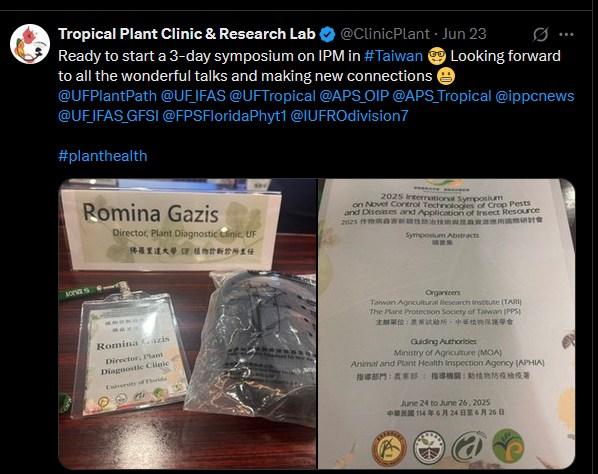
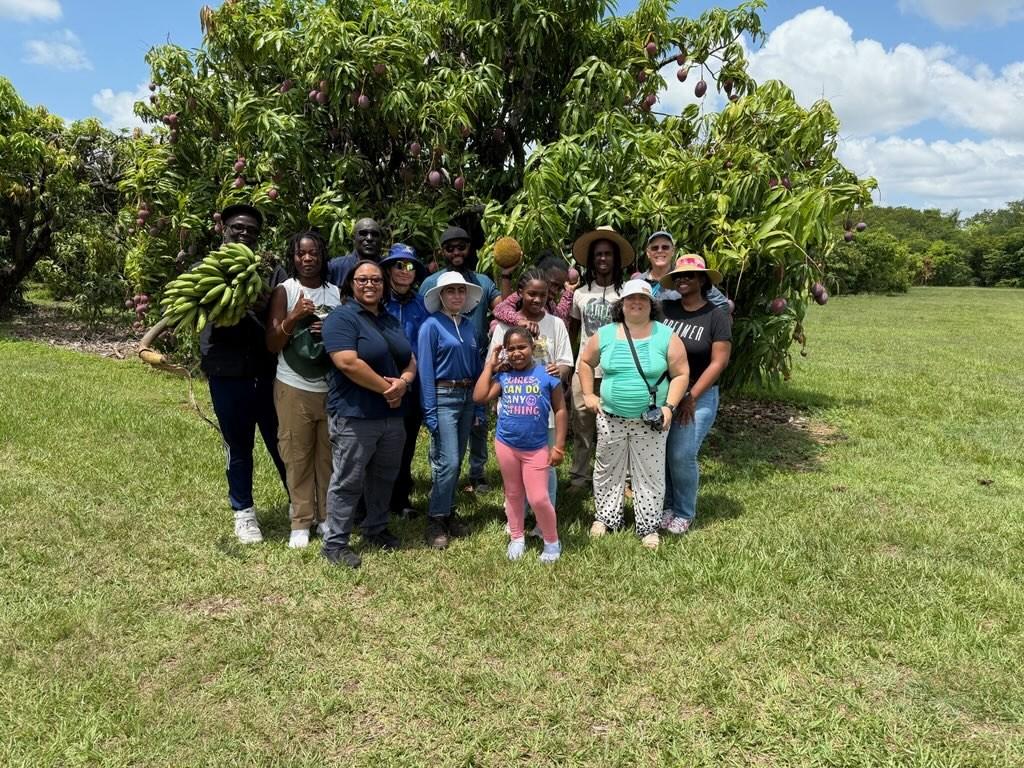
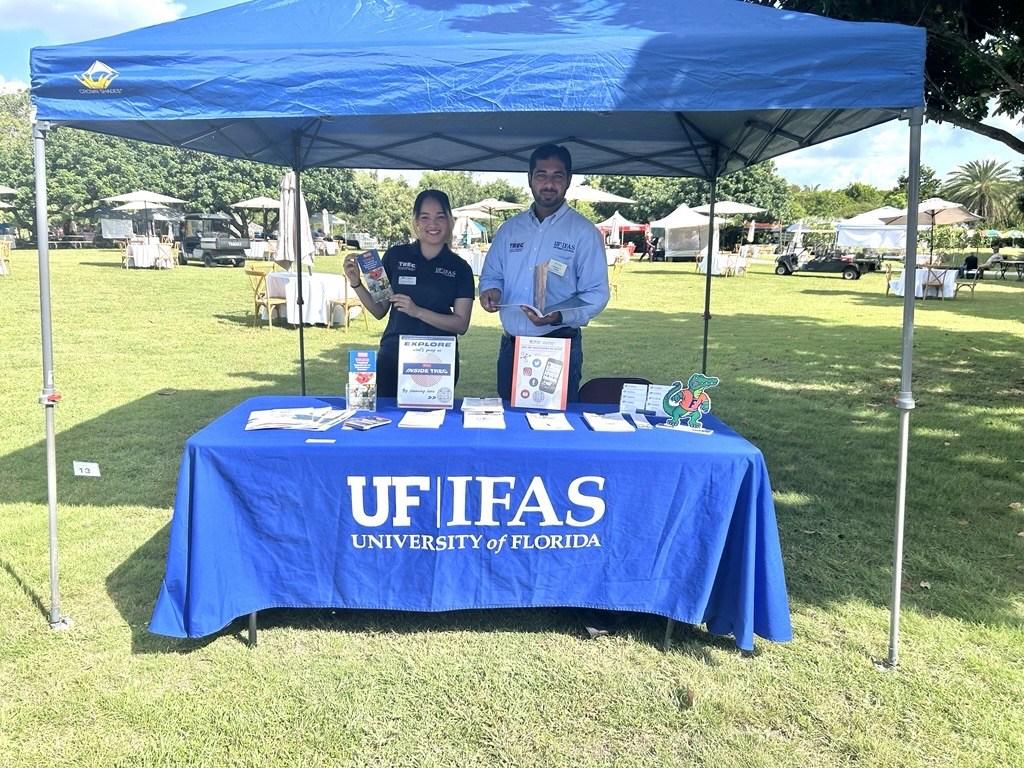
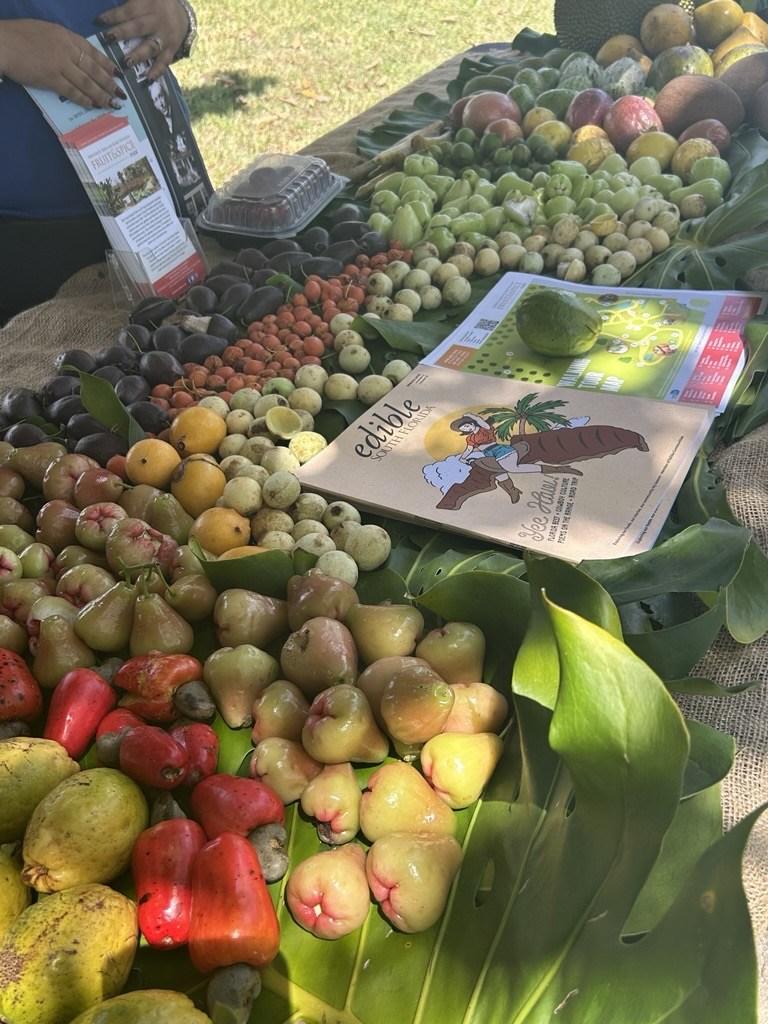
And the Extension work continues! We’re busy hosting tours for high school students, conducting Seminars, and educating growers at workshops. We hope you’ll come down to celebrate the Grand Opening of the Pauline O. Lawrence Student Residence and stay for the eleventh One Night in the Tropics UF/IFAS’ best philanthropic event in south Florida!

September 30
Produce Safety Grower Training
UF/IFAS Extension Miami-Dade County
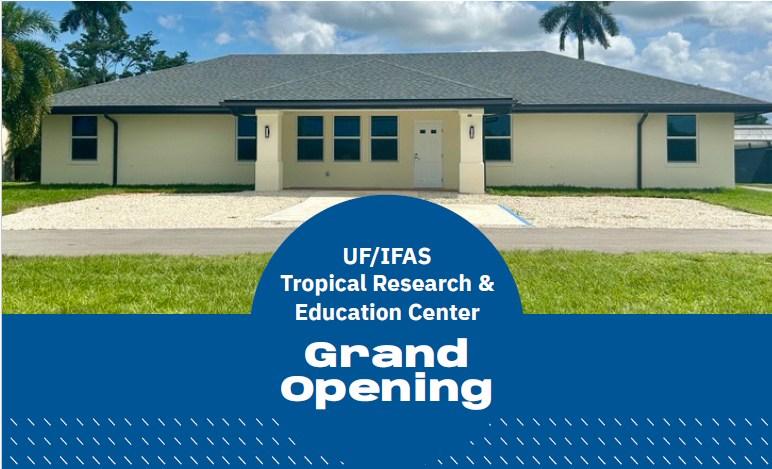
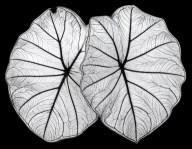
October 8
Webinar: Foliar diseases in ornamental crops in Miami-Dade
UF/IFAS TREC
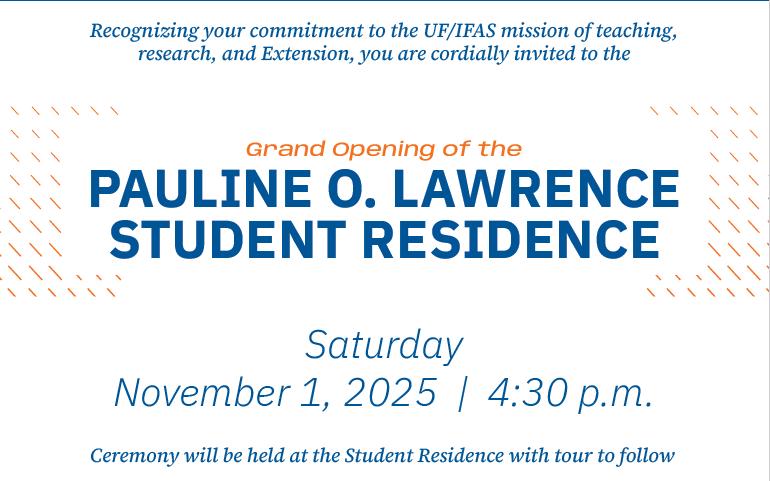
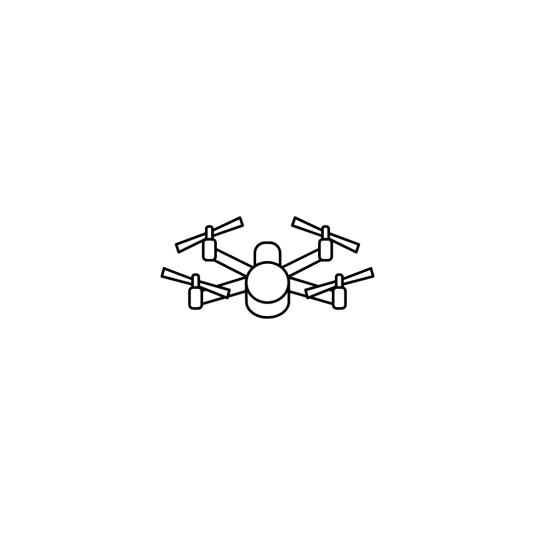
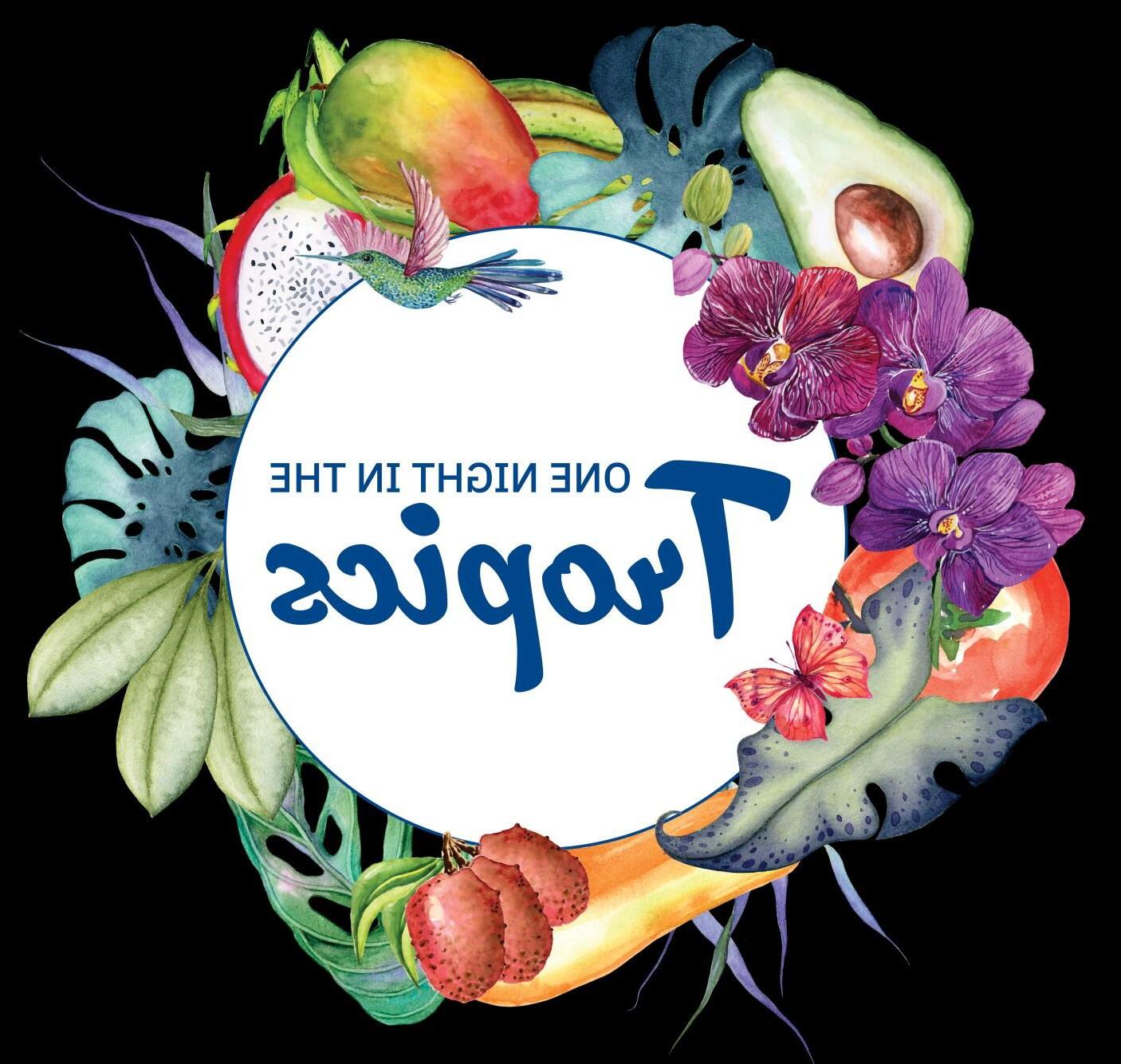
November 18
Hands-on workshop: New and Emerging Tools for Vegetable Producers
UF/IFAS TREC

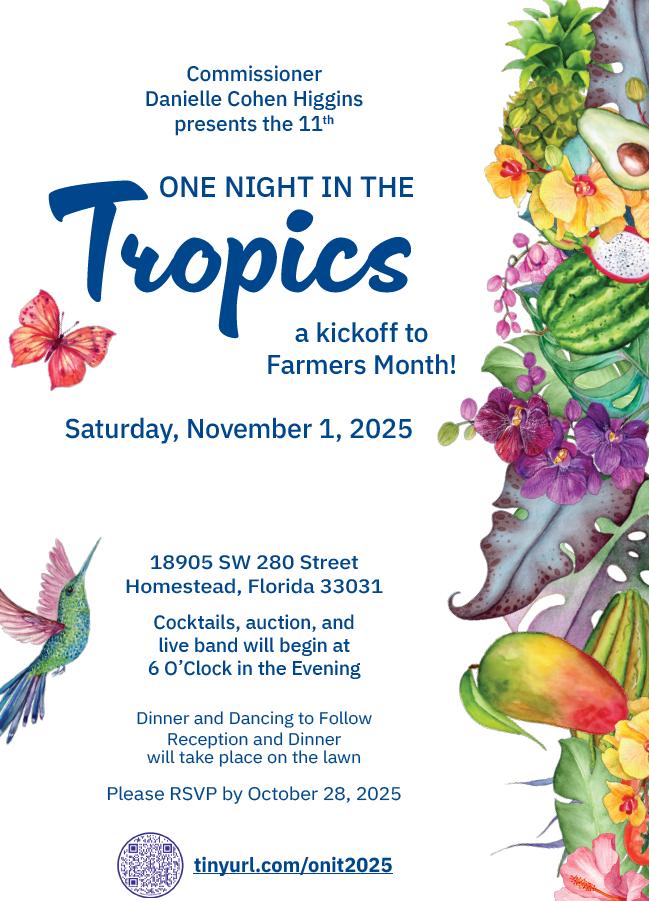
Here are some of the memorable moments from our social media this summer.
